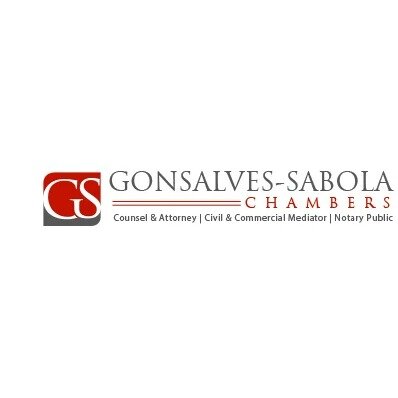Best Inheritance Law Lawyers in Bahamas
Share your needs with us, get contacted by law firms.
Free. Takes 2 min.
Or refine your search by selecting a city:
List of the best lawyers in Bahamas
1. About Inheritance Law in Bahamas
Inheritance law in The Bahamas governs how a deceased person's assets are distributed. It covers wills, intestate succession, probate, and the administration of estates. The law combines statutory rules with common law principles, interpreted by Bahamian courts and the probate registry. A solid understanding helps families avoid delays, disputes, and unintended tax or land transfer issues.
Key concepts include the testator who creates a will, executors who administer the estate, and beneficiaries who receive assets. When a person dies without a valid will, intestate succession rules determine who inherits and in what order. Bahamian law also addresses debts, guardianships for minors, and the administration of trusts created by a will. Working with a solicitor or attorney who specializes in inheritance matters can clarify options and protect interests.
2. Why You May Need a Lawyer
Inheritance matters can be complex and emotionally charged. A qualified attorney or solicitor can guide you through formal steps, avoid errors, and help protect your rights. Here are concrete real-world scenarios in The Bahamas where legal counsel is valuable:
- You believe a will is invalid or improperly executed and want to challenge it through probate or court procedures.
- You are the named executor and must navigate probate, debt settlement, and asset distribution accurately and efficiently.
- A relative died intestate, and you need to determine who is legally entitled to inherit and how to administer the estate.
- You need to transfer ownership of land or real property to beneficiaries, while ensuring compliance with the Aliens Landholding Act and other land laws.
- There is a dispute among siblings or co-beneficiaries over the interpretation of a will or the value of assets.
- You must deal with creditors, taxes, and estate debts before distribution, and you want to minimize personal exposure.
A lawyer can also help with international or cross-border issues, such as foreign wills or assets located outside The Bahamas. In all cases, a solicitor or attorney with experience in Bahamian probate, estate administration, and succession can advise on the best path forward. Engaging local counsel early helps avoid unnecessary delays and jurisdictional pitfalls.
3. Local Laws Overview
The Bahamas uses a mix of statutory measures and case law to govern inheritance. The following laws are central to understanding how estates are planned, tested, and settled:
- The Wills Act - Sets out the formal requirements for creating, witnessing, and validating wills in The Bahamas. This Act governs valid execution and capacity considerations for testators.
- The Intestate Succession Act - Describes how a deceased person’s estate is distributed when there is no valid will. It defines the order of heirs and shares for spouses, children, and other relatives.
- The Probate and Administration of Estates Act - Regulates the probate process, the appointment of executors or administrators, and the administration of an estate after death.
In addition to these core inheritance statutes, other laws can affect how property is inherited or transferred. The Aliens Landholding Act governs land ownership by non-Bahamian residents and may constrain how land is transferred by inheritance. Understanding these provisions helps beneficiaries plan effectively and avoid future challenges.
Notes on recent changes and trends: The Bahamas continues to rely on established statutory frameworks supplemented by court decisions. There have not been widely publicized, sweeping amendments to these core inheritance statutes in recent years. Residents should verify the current text of the acts and any amendments with an attorney or the official legislation portal before taking action. For official texts, see the sources below.
“The Wills Act provides the formal requirements for executing a will in The Bahamas, including writing, witnessing, and capacity.”Source: Laws of The Bahamas - Wills Act (official legislation portal) https://laws.bahamas.gov.bs
“Probate is the legal process that validates a will and appoints an executor or administrator for the estate.”Source: The Bahamas Judiciary - Probate Registry information (official site) https://www.judiciary.gov.bs
“The Aliens Landholding Act restricts land ownership for non-Bahamian residents and can impact transfer of property by inheritance.”Source: Laws of The Bahamas - Aliens Landholding Act (official legislation portal) https://laws.bahamas.gov.bs
4. Frequently Asked Questions
Below are common questions people ask about inheritance matters in The Bahamas. The wording is conversational and covers procedural, definitional, cost, timeline, qualification, and comparison aspects.
What happens if there is no valid will in Bahamas?
Intestate succession provisions determine who inherits and in what order. The estate is distributed to spouses, children, and other relatives according to statutory rules. An attorney can guide you through filing for letters of administration.
How do I start probate for an estate in The Bahamas?
You file a probate application with the appropriate registry after the death. A solicitor or attorney handles the paperwork, asset inventory, and creditor notices. The process begins with retrieving the death certificate and the will, if present.
What is the difference between an executor and an administrator?
An executor is named in a will to administer the estate. An administrator handles an estate when there is no will. Both roles involve collecting assets, paying debts, and distributing the remainder to beneficiaries.
How long does probate typically take in The Bahamas?
Timelines vary by complexity and estate size. Simple estates may conclude in several months, while larger or contested estates can take a year or more. A lawyer can provide a more precise estimate based on your case.
Do I need a Bahamian solicitor to handle probate?
While not always mandatory, hiring a Bahamian attorney or solicitor with probate experience helps ensure compliance with local rules and expedites the process. Local counsel understands court requirements and timelines.
Can a foreign will be recognized in The Bahamas?
Foreign wills can be recognized, but they may require local probate procedures or administrative steps. An attorney can determine if ancillary probate or recognition is needed in The Bahamas.
What documents should I gather to start probate?
Key documents include the death certificate, the will (if any), asset lists, title documents for real property, and information about debts and liabilities. An attorney will provide a tailored checklist.
What is the cost of probate or estate administration?
Costs vary with estate value, complexity, and whether a solicitor is engaged. Typical expenses include court fees, valuation costs, and attorney fees calculated as a percentage or hourly rate. Your lawyer can provide a detailed estimate.
What is the role of creditors in the probate process?
Creditors must be notified and debts settled before distributions to beneficiaries. The executor or administrator ensures valid claims are paid from estate assets before final distributions.
What if there is a dispute among beneficiaries?
Disputes may be resolved by negotiation, mediation, or court intervention. An experienced attorney helps you present evidence, interpret the will, and seek a fair resolution under Bahamian law.
What is the impact of the Aliens Landholding Act on inheritance?
If a beneficiary is a non-Bahamian, ownership of land may be subject to permission or licensing requirements. This can affect how land is transferred and may require legal strategies to preserve value.
Do I need to update my will after major life events?
Major events such as marriage, divorce, the birth of a child, or the acquisition of significant assets often warrant a will update. A solicitor can advise on updating language, executors, and beneficiaries.
5. Additional Resources
Use these official resources to access authoritative information on Inheritance Law in The Bahamas:
- The Bahamas Judiciary - Official source for probate, administration, and court procedures. It provides guidance on filing for probate and registering estate matters. https://www.judiciary.gov.bs
- The Attorney General’s Chambers - Government department responsible for legislation and legal policy, including statutory acts related to wills, estates, and succession. https://www.ago.gov.bs
- Laws of The Bahamas (Official Legislation Portal) - Consolidated statutes for The Bahamas, including the Wills Act, Intestate Succession Act, and Probate and Administration of Estates Act. https://laws.bahamas.gov.bs
6. Next Steps
- Identify your role and collect key documents - Determine whether you are an beneficiary, executor, or potential heir and gather death certificate, will (if any), asset lists, and title documents. Timeline: 1-2 weeks.
- Consult a Bahamas-qualified solicitor or attorney - Seek a lawyer with probate and intestate experience to assess options and risk. Timeline: 1-2 weeks for initial consultation.
- Evaluate the estate type - Confirm whether there is a valid will or if intestate succession applies. Timeline: 1-3 weeks for review and advice.
- Choose a probate path - Decide between probate, letters of administration, or ancillary procedures for foreign assets. Timeline: varies with case complexity.
- Prepare and file probate or administration applications - Your solicitor will assemble forms, inventories, and notices to creditors. Timeline: 4-8 weeks for initial filings in straightforward matters.
- Notify creditors and settle debts - Address estate liabilities before distribution to beneficiaries. Timeline: 2-6 months depending on debt clarity.
- Distribute assets and complete closure - After debts are paid, execute the distribution in accordance with the will or intestate rules. Timeline: 1-3 months after probate approval.
Lawzana helps you find the best lawyers and law firms in Bahamas through a curated and pre-screened list of qualified legal professionals. Our platform offers rankings and detailed profiles of attorneys and law firms, allowing you to compare based on practice areas, including Inheritance Law, experience, and client feedback.
Each profile includes a description of the firm's areas of practice, client reviews, team members and partners, year of establishment, spoken languages, office locations, contact information, social media presence, and any published articles or resources. Most firms on our platform speak English and are experienced in both local and international legal matters.
Get a quote from top-rated law firms in Bahamas — quickly, securely, and without unnecessary hassle.
Disclaimer:
The information provided on this page is for general informational purposes only and does not constitute legal advice. While we strive to ensure the accuracy and relevance of the content, legal information may change over time, and interpretations of the law can vary. You should always consult with a qualified legal professional for advice specific to your situation.
We disclaim all liability for actions taken or not taken based on the content of this page. If you believe any information is incorrect or outdated, please contact us, and we will review and update it where appropriate.
Browse inheritance law law firms by city in Bahamas
Refine your search by selecting a city.

















